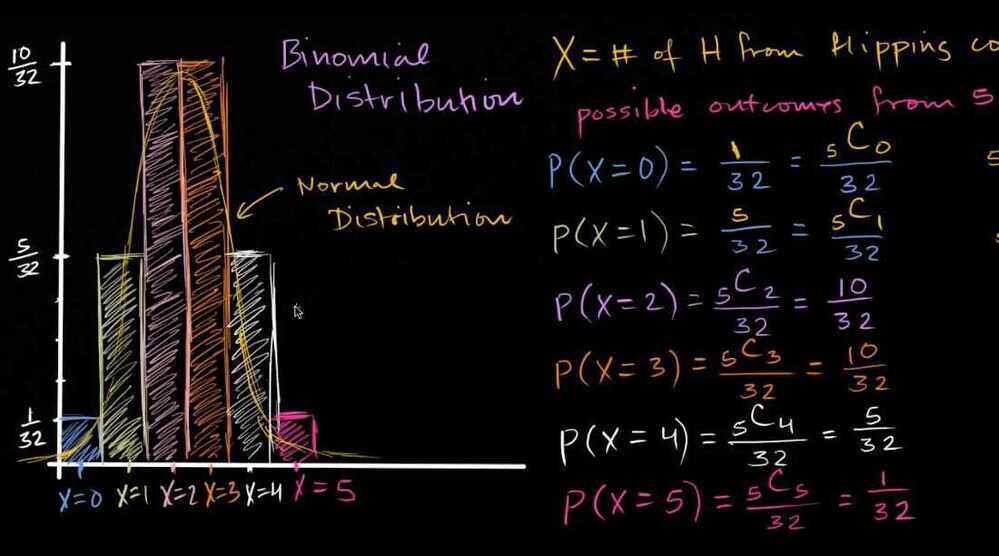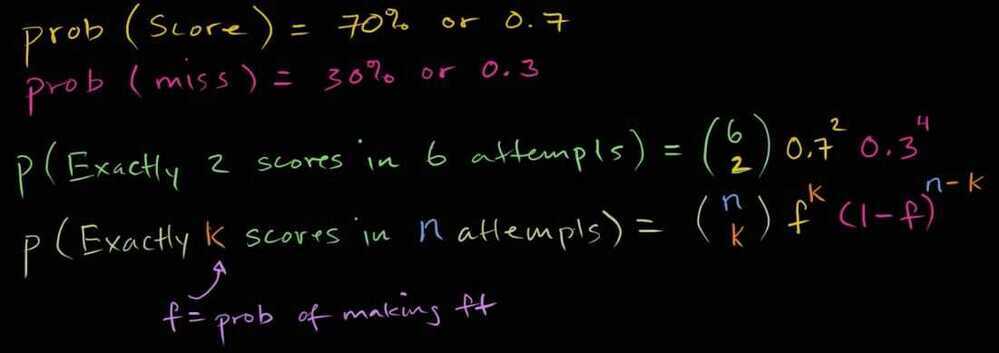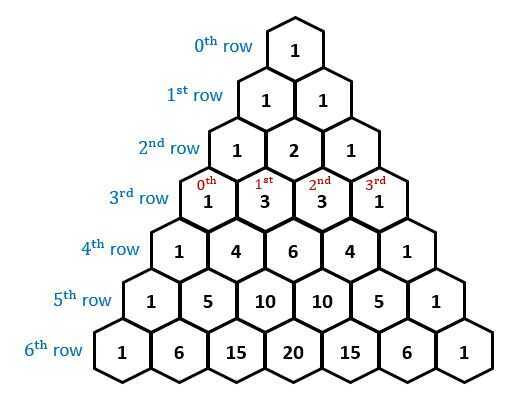Binomial Random Variables
- Binomial Random Variables
The conditions of a binomial random variable are -
- Made up of independent trials
- Each trial can be classified as either success or failure
- Fixed number of trials
- Probability of success on each trial is constant Ex - X = Number of heads after 10 flips of a coin with P(H) = 0.6 and P(T) = 0.4
Not binomial variable - Number of kings after taking 2 cards from standard deck without replacement (It doesn't meet independent trial, the second trial depends on 1st trial) SRS - Simple Random Sample, is a sample taken so that each member in a set of n members has an equal chance of being in the sample. 2. Distributions
-
Normal distribution, (Continuous distribution - bell curve)
-
Binomial distributions (Normal distributions with discrete steps)
-
10% rule of assuming independence between trials
-
Binomial Distribution


-
Binompdf (Binomial Probability Distribution Function) and Binomcdf (Binomial Cumulative Distribution Function) functions
-
Bimodal distribution
-
Uniform distribution
-
Bernoulli distribution
Others
- Galton Board - Every time creates normal distribution, pegs are arranged in pattern of Quincunx (pattern of 5 pegs, where 4 are on sides of square and 1 in middle, like dice - 5)
- Follow Binomial Distribution (Central limit theorem, says that under large number of trials like 3000 balls a binomial distribution approximates a normal distribution)
- Pascal's Triangle

- Creates Fibonacci Series
- Rows gives sequence of coefficients in binomial powers
(a + b)^2^ = a^2^ + 2.a.b + b^2^ [FOIL - First, Outer, Inner, Last]
(a+b)^4^ = a^4^+ 4 a^3^b + 6 a^2^b^2^+ 4 ab^3^+ b^4^
These have same coefficients as 4th row of pascal's triangle The Galton Board